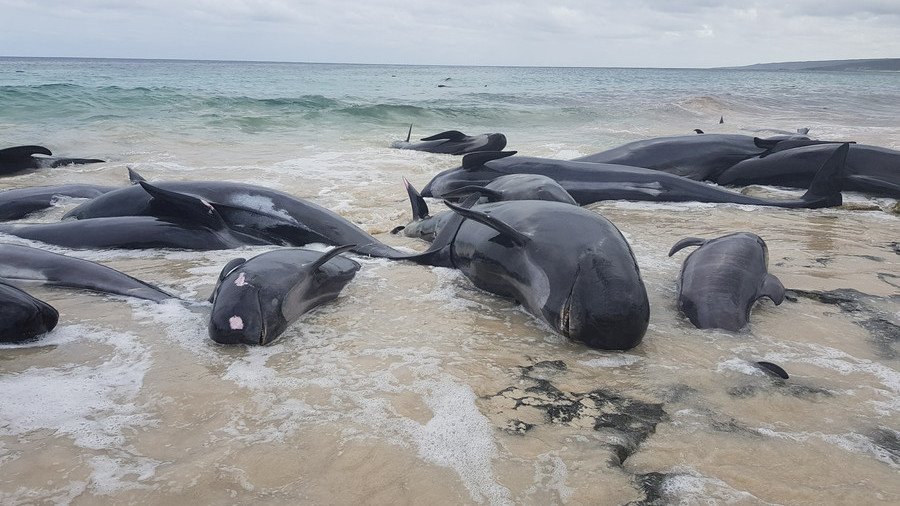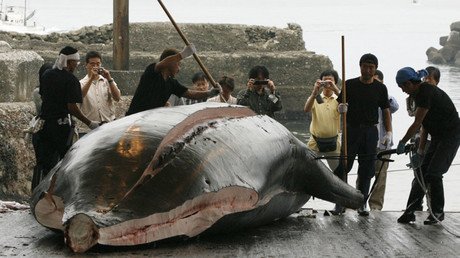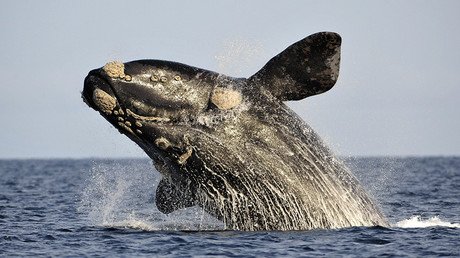Shark attack warning: Fears man-eaters will head for beach where 140 whales died (IMAGES, VIDEO)

More than 140 pilot whales have died after becoming stranded on a beach in Western Australia. A shark warning has now been issued as volunteers race to rescue the beached pod’s seven remaining survivors.
The whales were spotted at Hamelin Bay on Australia’s southwest coast after around 150 of the oceanic mammals beached themselves in the early hours of Friday morning. “The strength of the animals and the windy and possibly wet weather conditions will affect when and where we attempt to move them out to sea,” Jeremy Chick, the incident controller for the region’s Parks and Wildlife Service, said in a statement.
READ MORE: Tragic beauty: 30-ton humpback whale washes up on Rio beach (VIDEO, PHOTO)
The Parks and Wildlife Service has announced that preparations are underway to move the seven remaining whales into deeper waters by nightfall. The service has also closed all nearby beaches to swimmers and other water sport enthusiasts amid fears the dead animals could attract sharks to the shoreline. The Sydney Morning Herald reports that there had been one unconfirmed detection of a shark near Hamelin Bay at around 8am local time Friday morning.
Shark attack warning: Fears man-eaters will head for beach where 140 whales died (via: gababylon) https://t.co/puCiC9NPNPpic.twitter.com/VSjBSWLoKJ
— RT (@RT_com) March 23, 2018
Rescuers say moving the whales is difficult given their position on the rocky beach terrain and the location of dead whales around the live ones. “Once we have moved the whales out we will monitor the situation closely as it is possible the whales will come back into shore and re-strand. This has often been the case in previous mass strandings,” Chick said.
Parks and Wildlife Service staff are being assisted by vets, Sea Search and Rescue, and more than 100 volunteers. Tests are now being carried out on the remains of the dead animals to find out why the animals became beached.
Short-fin pilot whales inhabit tropical and subtropical waters and move in pods of around 100. They are known for stranding en masse. The largest mass-stranding in western Australia occured in 1996 when around 320 pilot whales beached in Dunsborough, north of Hamelin Bay.
More than 150 short-finned pilot whales have stranded at Hamelin Bay. Keep clear of the area as trained volunteers, veterinary and Parks and Wildlife Service staff are ensuring the welfare of the remaining before any rescue attempt is made to herd the whales back out to sea. pic.twitter.com/9LWXDidGq1
— Parks and Wildlife (@WAParksWildlife) March 23, 2018
Think your friends would be interested? Share this story!














